Top 15 Chatbase alternatives
- Jotform AI Agents: Best no-code solution and multi-agent dashboard
- Lindy: Best for AI agents and workflow automation
- Botsonic: Best for no-code chatbots trained on your data
- Ingest AI: Best for enterprise data ingestion and AI chatbots
- Yellow.ai: Best for omnichannel enterprise conversational AI
- Botpress: Best for developers wanting open-source customization
- Denser AI: Best for knowledge automation and customer support
- Drift: Best for conversational sales and marketing
- Intercom (Fin AI): Best for AI-powered customer support inside Intercom
- Amio: Best for conversational design and integrations
- YourGPT: Best for branded, ChatGPT-like chatbot experiences
- Rasa: Best for open-source conversational AI with full control
- Ada: Best for scaling automated customer service
- ManyChat: Best for social media, e-commerce, and multichannel bots
- Haptik: Best for enterprise conversational AI and automated customer engagement
Artificial intelligence (AI) chatbots are essential for customer support, marketing, and sales. Customers — especially Gen Z and millennials — expect 24-7 availability, instant answers, and self-service options.
For businesses, this shift brings major benefits: Chatbots reduce workload, accelerate response times, and free up teams to focus on more strategic tasks. The challenge? These benefits are only achieved with the right chatbot platform.
Businesses need something efficient, human-like, and within budget. While Chatbase is a well-known tool for building AI-powered chatbots, it isn’t the perfect fit for everyone — and many people research Chatbase alternatives due to integration limitations, pricing, or advanced AI features.
In this article, I explore 15 of the best Chatbase alternatives. I’ve covered who they’re ideal for, key features, pros and cons, pricing, and G2 ratings, so you can find the Chatbase alternative that’s right for you.
What to look for in a Chatbase alternative
Selecting the perfect AI chatbot platform is about picking the right tool and not just going for a direct Chatbase competitor with a similar feature set because it’s what you think you need.
Before you jump in and make your choice, think about what your team needs to do their job most effectively. Also consider what benefits your business in terms of scalability, integrations, customization, and long-term value.
No-code chatbot building
No-code solutions are ideal when developers are unavailable to build and maintain AI chatbots. Good no-code options, like Jotform AI Agents, enable anyone to create and launch bots. Like me — I’m a marketer, and I don’t have any coding skills, but I’ve added Jotform’s AI chatbots to two WordPress sites within minutes.
AI-powered responses
AI-powered responses are a bare minimum requirement for an AI chatbot platform, but not all AI responses are created equally.
According to Zendesk’s recent CX trends report, the majority of consumers value human-centric AI agents. For your chatbot to keep users happy, it must understand intent and provide natural and context-aware answers.
To make this possible, you need a chatbot that can be trained. If you can provide your documentation — such as tone of voice, brand guidelines, and details of common questions and answers — the chatbot can incorporate them into its responses.
Multi-platform integrations
Your customer’s journey and touchpoints with your brand are no longer linear. Customers expect to be able to contact you across your website, social media, and messaging apps. And they expect a consistent experience across these platforms.
A strong Chatbase alternative should integrate seamlessly, so if a customer places an order on your website, they can still contact you with a query about it on WhatsApp or Facebook Messenger.
Automation capabilities
The best chatbot platforms go beyond answering questions — they automate repetitive tasks to make your team’s jobs easier and faster. For example, you can:
- Capture leads and have the details mapped to your customer relationship management (CRM) with an integration.
- Book appointments that automatically schedule into your calendar.
- Route tickets to the right customer support representative.
These automations reduce manual workload and speed up customer journeys.
Pricing models
Cost is a significant factor when choosing a Chatbase alternative, especially as chatbot usage scales. But it’s not a one-size-fits-all — different businesses have varying needs. The most expensive solution likely has the broadest feature set, but if you just don’t need them, there’s no benefit to using it.
There are also preferences to consider. For example, you might prefer a managed cost, so a chatbot that costs per conversation won’t work. Instead, you’d look for transparent pricing and flexible tiers that grow with your business.
The 15 best Chatbase alternatives at a glance
Jotform AI Agents |  Lindy |  Botsonic |  Ingest AI |  Yellow.ai |  Botpress |  Denser AI | 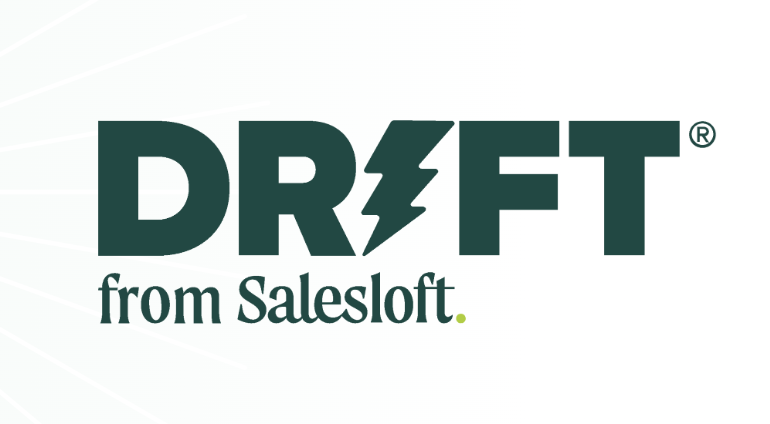 Drift |  Intercom (Fin AI) |  Amio |  YourGPT |  Rasa |  Ada | 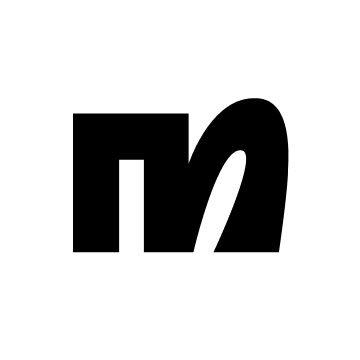 ManyChat | 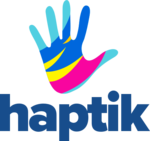 Haptik | |
|---|---|---|---|---|---|---|---|---|---|---|---|---|---|---|---|
| Best for | A no-code solution and multi-agent dashboard | AI agents and workflow automation | No-code chatbots trained on your data | Enterprise data ingestion and AI chatbots | Omnichannel enterprise conversational AI | Developers wanting open-source customization | Knowledge automation and customer support | Conversational sales and marketing | AI-powered customer support inside Intercom | Conversational design and integrations | Branded, ChatGPT-like chatbot experiences | Open-source conversational AI with full control | Scaling automated customer service | Social media, e-commerce, and multichannel bots | Enterprise conversational AI and automated customer engagement |
| Plans/pricing | Free version; paid plans start at $34 per month | Free version; paid plans start at $49.99 per month | Free version; paid plans start at $16 per month | Free version; paid plans start at $25 per month | Free version; contact Yellow.ai for information on plans and pricing | Free version; paid plans start at $89 plus AI spend per month | Free version; paid plans start at $29 per month | Contact Drift for information on plans and pricing | Free version; paid plan is $0.99 per resolution (50 resolutions per month minimum) | Free version; paid plans start at $150 per month | Paid plans start at $39 per month | Free version; paid plans start at $35,000 per year | Contact Ada for information on plans and pricing | Free version; paid plans start at $15 per month | Contact Haptik for information on plans and pricing |
1. Jotform AI Agents: Best no-code solution and multi-agent dashboard
Jotform AI Agents turn traditional forms into dynamic, conversational chatbots that work across multiple channels. The platform combines no-code simplicity with robust data management through Jotform Tables, making it both a customer-facing and back-end productivity tool. It’s an excellent fit for small to mid-sized businesses that want to deploy chatbots quickly and appreciate predictable monthly costs.
- Key features: No-code setup — just copy and paste the auto-generated code to embed a chatbot; train agents with documents, blogs, and videos; central dashboard for managing all AI agents across different channels; agents are available for a range of channels, including websites, social media messengers, WhatsApp, and more
- Pros: Extensive template library, including 1,000-plus pre-built agents for specialized use cases; human takeover functionality ensures customers can connect with real agents when needed
- Cons: Lower-tier plans include Jotform branding, requiring an upgrade for white-label solutions
- Plans/pricing:
- Free: Up to five agents
- Bronze ($34 per month, billed annually)
- Silver ($39 per month, billed annually)
- Gold ($99 per user per month, billed annually)
- G2 rating: 4.7/5 based on over 3,500 reviews
2. Lindy: Best for AI agents and workflow automation
Lindy is an AI platform designed to build customizable digital agents that handle tasks and workflows. It combines conversational AI with process automation, making it more than just a simple chatbot. It’s popular among startups and tech-forward teams that also want to automate repetitive tasks.
- Key features: Build AI agents and train them on company workflows and documentation, no-code interface allows anyone to create and manage agents
- Pros: Easy to set up, requiring minimal technical knowledge; strong focus on workflow automation, not just chat
- Cons: Still a relatively new platform, so has fewer third-party integrations than established competitors; pricing is credit-based, which can be a drawback for those who want a managed cost
- Plans/pricing:
- Free: 400 credits a month
- Pro ($49.99 per month): 5,000 credits
- Business ($199.99 per month): 20,000 credits
- Enterprise (custom pricing): As many credits as you need
- G2 ratings: 4.9/5 based on over 100 reviews
3. Botsonic: Best for no-code chatbots trained on your data
Botsonic by Writesonic lets you create AI agents trained on your company’s knowledge, so your chatbot can make intelligent decisions based on your content. It can then automatically perform tasks like updating CRM systems, scheduling appointments, and more. It’s popular among small businesses and marketing teams that want a simple yet powerful way to launch branded chatbots without relying on developers.
- Key features: Upload PDFs, docs, or URLs to train bots on company-specific data; drag-and-drop interface for building conversation flows; context-aware solutions, as the bot can access user accounts and then provide intelligent answers not just scripts
- Pros: Quick setup with minimal technical skills required, multilingual support queries can be handled in over 50 languages
- Cons: Limited customization compared to developer-focused platforms; reliant on the Writesonic ecosystem, so integrations can be narrower than enterprise solutions
- Plans/pricing:
- Free (seven-day trial)
- Starter ($16 per month, billed annually)
- Professional ($41 per month, billed annually)
- Advanced ($249 per month, billed annually)
- Enterprise (custom pricing)
- G2 rating: 4.6/5 based on over 90 reviews
4. Ingest AI: Best for enterprise data ingestion and AI chatbots
Ingest AI is a platform designed to connect company data sources with powerful AI-driven chatbots. You can provide training data from multiple knowledge bases — such as docs, wikis, or cloud platforms — to deliver accurate, context-rich answers. It’s a strong choice for enterprise teams that need chatbots capable of handling complex queries across large datasets.
- Key features: Integrates with data sources such as Notion, Slack, and Google Drive for knowledge ingestion; provides contextual AI chatbots that respond with company-specific information; scales to handle enterprise-level data and multi-team usage
- Pros: Easy to deploy across internal and external use cases, strong focus on accuracy and contextual understanding
- Cons: May require more setup time compared to lighter no-code chatbot builders
- Plans/pricing:
- Free
- Basic ($25 per month, billed annually)
- Pro ($60 per month, billed annually)
- Business (custom pricing)
- G2 rating: 3.5/5 based on one review
5. Yellow.ai: Best for omnichannel enterprise conversational AI
Yellow.ai is an enterprise-grade conversational AI platform that delivers customer and employee experiences across voice, chat, and messaging channels. It’s best suited for large organizations that need to serve global audiences with consistent, intelligent support.
- Key features: AI-powered analytics to track and optimize customer journeys; conversational knowledge base so AI can refer to your documentation to provide enterprise intelligence to chatbot users; AI co-pilot helps with previewing, debugging, and optimizing your AI agent
- Pros: Scalable for enterprise use with multilingual and multi-region support; AI agent builder features a flexible mix of no-code tools and developer options, so anyone can create agents in minutes; unified platform for chat, voice, and messaging bots; pre-built industry-specific templates for faster deployment
- Cons: Higher pricing tiers compared to small to medium business-focused platforms, complexity may be unnecessary for smaller teams with limited use cases
- Plans/pricing: Free version; contact Yellow.ai for information on plans and pricing
- G2 rating: 4.4/5 based on over 100 reviews
6. Botpress: Best for developers wanting open-source customization
Botpress’s open-source AI platform is ideal for companies with strong developers who want full control over chatbot design and functionality for tailored conversational AI with deep integrations. It offers flexibility, transparency, and the ability to build highly customized bots.
- Key features: Open-source framework with extensive developer tools so you can build a completely custom solution, modular architecture for building custom conversational flows, supports integrations with major messaging apps and APIs
- Pros: Complete flexibility for developers to customize features, no vendor lock-in thanks to its open-source model, active community and documentation for support
- Cons: Suitable for technical teams only — anyone else would face a steep learning curve; usage-based pricing, so there’s no managed cost of predictability
- Plans/pricing:
- Free
- Plus ($89 plus AI spend per month)
- Team ($495 plus AI spend per month)
- Enterprise ($2,000 plus AI spend per month)
- G2 rating: 4.5/5 based on over 400 reviews
7. Denser AI: Best for knowledge automation and customer support
Denser AI is a conversational AI platform that focuses on automating customer support by extracting accurate answers directly from company knowledge bases. It helps reduce ticket volume by delivering fast, context-aware responses without human intervention. It’s a strong fit for customer support teams looking to scale service while cutting operational costs.
- Key features: AI-powered chatbots trained on internal knowledge and frequently asked questions that help produce automated, but natural, context-aware answers for support; chatbot handover to a live agent when needed; built-in analytics to measure resolution rates and customer satisfaction
- Pros: Reduces workload for support teams by handling repetitive queries; improves customer satisfaction with instant, accurate responses; designed to integrate smoothly into existing support workflows
- Cons: Less flexible for use cases outside customer support, limited brand recognition compared to larger competitors
- Plans/pricing:
- Free
- Starter ($29 per month, billed annually)
- Standard ($119 per month, billed annually)
- Business ($399 per month, billed annually)
- G2 rating: 4.8/5 based on fewer than ten reviews
8. Drift: Best for conversational sales and marketing
Drift is a conversational marketing and sales platform that uses AI chatbots to engage website visitors, qualify leads, and book meetings. Part of Salesloft, it focuses on revenue-driven conversations, making it a favorite for sales and marketing teams. It’s best suited for B2B companies that want to accelerate their pipeline by connecting prospects to the right reps faster.
- Key features: AI chatbots that qualify leads and save human time by scheduling sales calls for them; real-time personalization based on visitor behavior and CRM data; integrations with Salesforce, HubSpot, and other day-to-day tools
- Pros: Integrations with Salesloft, including sync automation with the CRM for a smoother process; easy for sales teams to use without a heavy technical setup
- Cons: Higher pricing compared to general-purpose chatbot platforms
- Plans/pricing: Contact Drift for information on plans and pricing
- G2 rating: 4.4/5 based on over 1,200 reviews
9. Intercom (Fin AI): Best for AI-powered customer support inside Intercom
Intercom is a leading customer communications platform. It’s enhanced with its AI assistant, Fin, which brings advanced automation into the mix. Fin uses AI to deliver instant, accurate answers from a company’s help center, reducing ticket volume while keeping conversations personal. It’s best suited for businesses already using Intercom that want to add AI-powered support without switching platforms.
- Key features: An AI assistant trained on your Intercom help center and knowledge base, smooth escalation from Fin to human support agents when needed, analytics dashboard to monitor performance and optimize responses
- Pros: Native to the Intercom ecosystem, so there’s no need for third-party tools; improves response times and reduces repetitive support queries
- Cons: Only available within the Intercom platform, limiting flexibility; pricing can scale quickly as conversation volumes increase
- Plans/pricing:
- Free (14-day trial)
- Fin with your current help desk ($0.99 per resolution, 50 resolutions per month minimum)
- Fin with Intercom’s help desk ($0.99 per resolution and $29 per help desk seat per month)
- G2 rating: 4.5/5 based on over 3,500 reviews
10. Amio: Best for conversational design and integrations
Amio is a conversational AI platform that helps businesses build chatbots and voice assistants with a focus on design and smooth integrations. It offers flexible tools for creating conversational flows while supporting a wide range of communication channels. It’s a good choice for teams that need to connect their chatbots with existing systems and deliver a consistent experience across platforms.
- Key features: Conversational design tools for building rich chatbot experiences; integrations with CRMs, help desks, and messaging platforms; supports both chat and voice interactions
- Pros: Strong integration capabilities with business systems; flexible for customer support, sales, and internal workflows; designed to handle both simple and complex conversations
- Cons: Limited template library compared to no-code chatbot builders
- Plans/pricing:
- Free
- Chatbot Starter ($150 per month)
- AI Expert ($350 per month)
- AI Scale (from €2.950 per month)
- G2 rating: 4.8/5 based on over 20 reviews
11. YourGPT: Best for branded, ChatGPT-like chatbot experiences
YourGPT is a customizable conversational AI solution that allows businesses to create branded chatbots modeled after ChatGPT. It provides more control over design, training data, and customer interactions compared to out-of-the-box tools. This makes it well suited for businesses that want to deliver tailored conversational AI experiences while maintaining brand voice and consistency.
- Key features: Customizable chatbot design for a fully branded experience; train bots on company-specific data and frequently asked questions; multi-channel support for web, messaging, and apps
- Pros: High level of control over both branding and functionality, delivers more personalized conversations than generic chatbot platforms, easy to adapt across different industries and use cases
- Cons: Less established than larger conversational AI competitors, may require more setup effort compared to no-code platforms
- Plans/pricing:
- Essential ($39 per month, billed annually)
- Professional ($79 per month, billed annually)
- Advanced ($349 per month, billed annually)
- Enterprise (custom pricing)
- G2 rating: 4.7/5 based on fewer than 20 reviews
12. Rasa: Best for open-source conversational AI with full control
Rasa is an open-source conversational AI framework that gives developers complete flexibility to build and deploy chatbots tailored to their exact needs. It provides full transparency, no vendor lock-in, and advanced customization options. It’s best suited for enterprises and technical teams that need robust, scalable conversational AI solutions.
- Key features: Open-source framework with customizable natural language understanding (NLU); integrations with popular messaging channels and enterprise systems; scalable infrastructure for complex, multi-turn conversations
- Pros: Full control and flexibility over chatbot design and deployment, active open-source community with extensive resources
- Cons: Requires significant technical expertise to set up and manage, longer implementation time compared to no-code alternatives
- Plans/pricing:
- Free developer edition
- Growth ($35,000)
- Enterprise (custom pricing)
- G2 rating: 4.9/5 based on over 80 reviews
13. Ada: Best for scaling automated customer service
Ada is an AI-powered customer service automation platform designed to reduce support costs and improve customer satisfaction. It enables large-scale automation without sacrificing personalization, helping brands deliver quick and accurate answers across multiple channels. It’s ideal for mid-market and enterprise companies that need scalable, AI-driven customer support.
- Key features: AI chatbots that resolve repetitive customer queries automatically, advanced analytics to track performance and optimize workflows
- Pros: Scales easily to handle high support volumes, strong focus on reducing ticket backlog and response times, delivers personalized experiences through AI-powered responses
- Cons: Pricing is custom and aimed at larger organizations, making it less accessible for small businesses; less flexibility for highly customized, developer-driven use cases
- Plans/pricing: Contact Ada for information on plans and pricing
- G2 rating: 4.6/5 based on over 150 reviews
14. ManyChat: Best for social media, e-commerce, and multichannel bots
ManyChat is a popular chatbot platform known for its ease of use and strong multichannel capabilities. It integrates directly with social platforms like Instagram, WhatsApp, and Facebook Messenger, making it highly effective for customer engagement and e-commerce. It’s best suited for small businesses and online retailers that want to boost sales and support customers on social media.
- Key features: Pre-built templates for e-commerce and social media engagement, no-code automations with drag-and-drop customization, seamless integration with messaging apps and e-commerce platforms like WordPress and Shopify
- Pros: Affordable and beginner-friendly, with free or low-cost plans; great fit for businesses focused on social media marketing and sales; quick to set up and deploy without technical expertise
- Cons: Limited customization compared to enterprise-focused platforms, less robust for complex workflows or large-scale customer support
- Plans/pricing:
- Free
- Pro ($15 per month)
- Elite (custom pricing)
- G2 rating: 4.5/5 based on over 150 reviews
15. Haptik: Best for enterprise conversational AI and automated customer engagement
Haptik is a conversational AI platform focused on building intelligent chat and voice bots for enterprises. It offers mature AI, deployment flexibility, and global support — making it suited for large-scale customer engagement. It’s often used by enterprises and brands that need reliable automation across customer support, conversational commerce, and self-service use cases.
- Key features: Omnichannel conversational bots (chat and voice) with NLU, integration with enterprise systems (CRM, ticketing, etc.), scalable deployment and management across multiple regions
- Pros: Enterprise-level maturity and reliability, strong support and infrastructure for large-scale deployment
- Cons: More complex setup and onboarding compared to simpler tools
- Plans/pricing: Contact Haptik for information on plans and pricing
- G2 rating: 4.5/5 based on over 150 reviews
So, what’s the best Chatbase alternative?
The right Chatbase alternative for your business will depend on your goals, budget, and technical resources. Smaller businesses with limited developer support may prefer no-code chatbot builders like Jotform AI Agents, which make it easy to get started quickly. Enterprises that need scalable, omnichannel conversational AI will benefit more from platforms like Yellow.ai, Ada, or Haptik, which offer enterprise-grade automation and integrations.
If you’re not sure where to start, begin with the non-negotiables — like how much you can invest, your data requirements, or the platforms you need to integrate with. From there, you can narrow the list to the solution that fits best.
This article is for business owners, marketers, and customer experience teams looking for the best AI chatbot platforms to replace or improve upon Chatbase. It’s ideal for those comparing no-code and developer-friendly options to automate support, boost engagement, and streamline workflows in 2025.
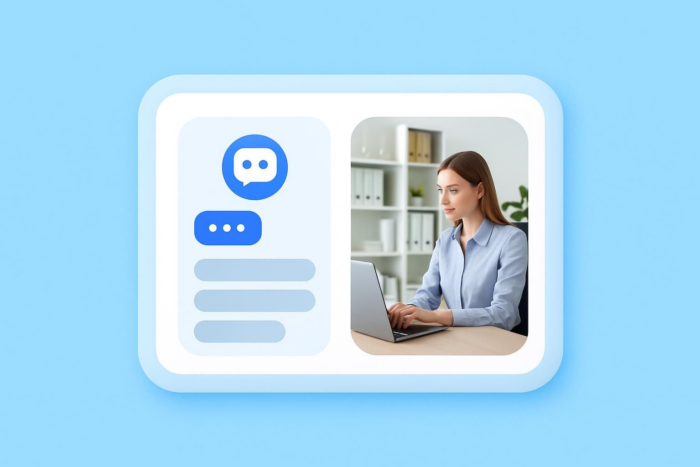
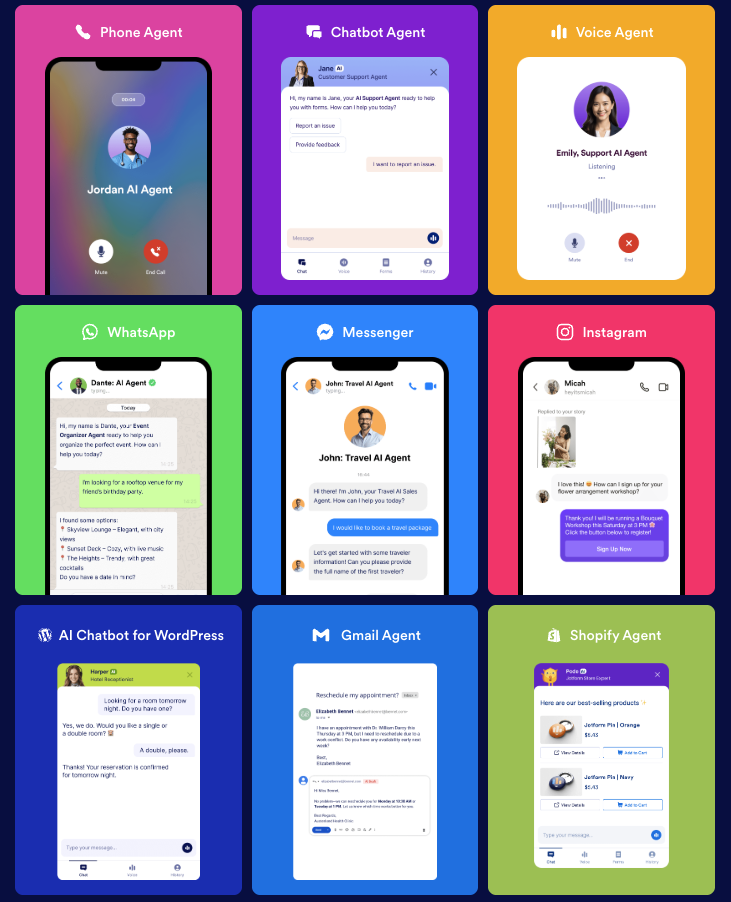



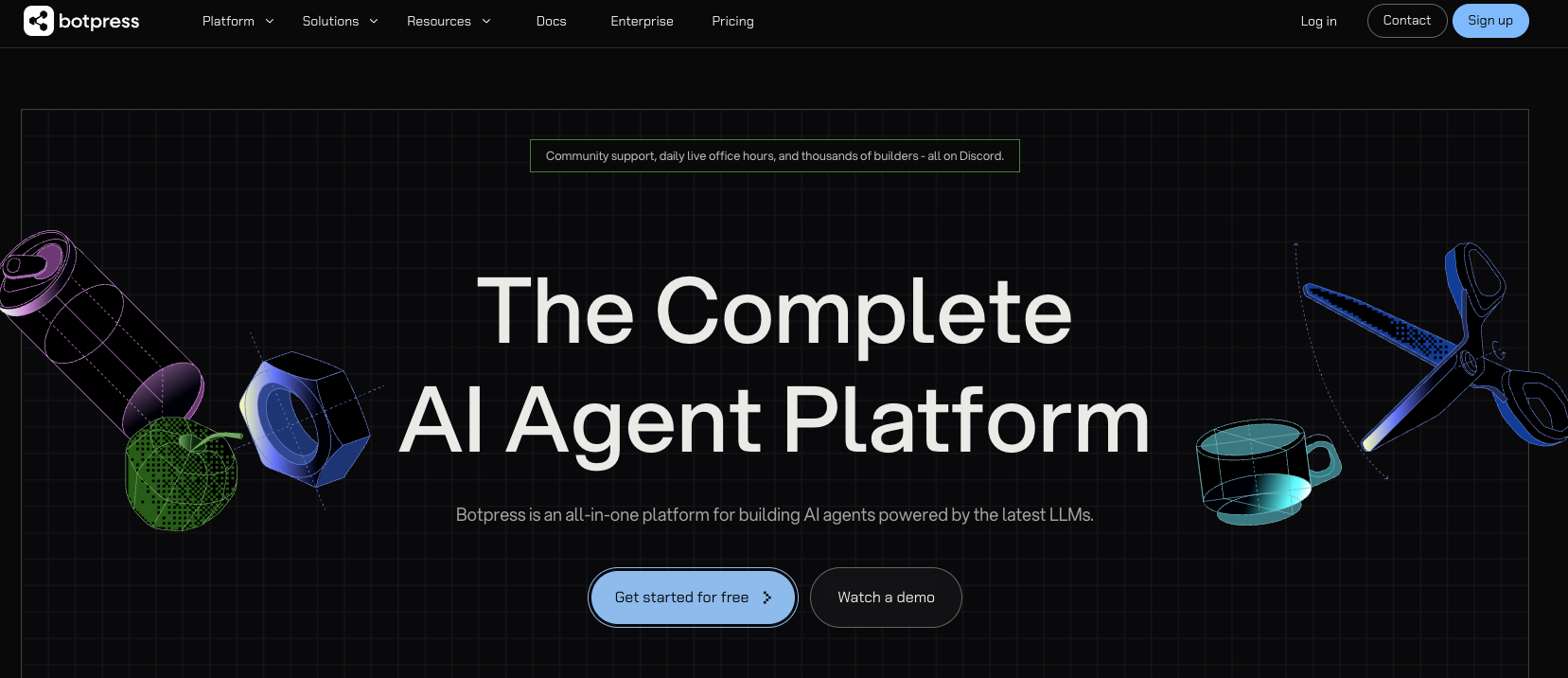






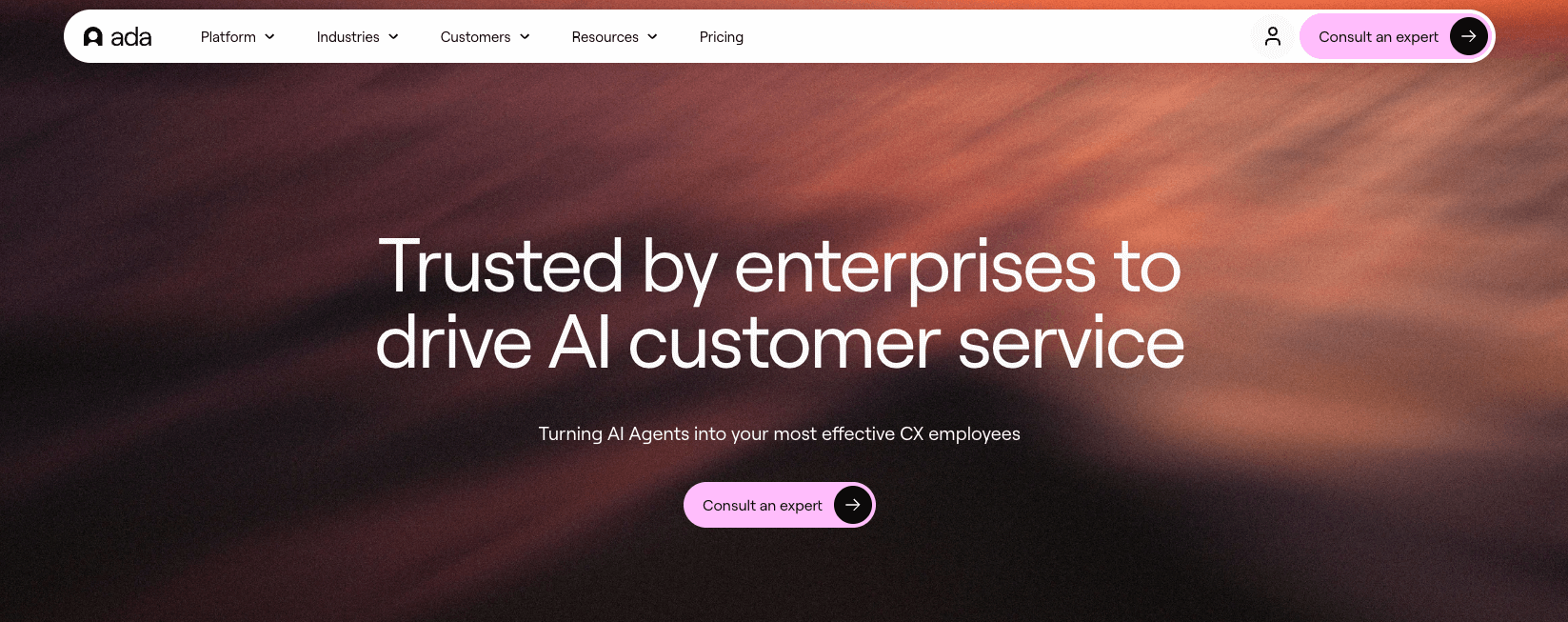

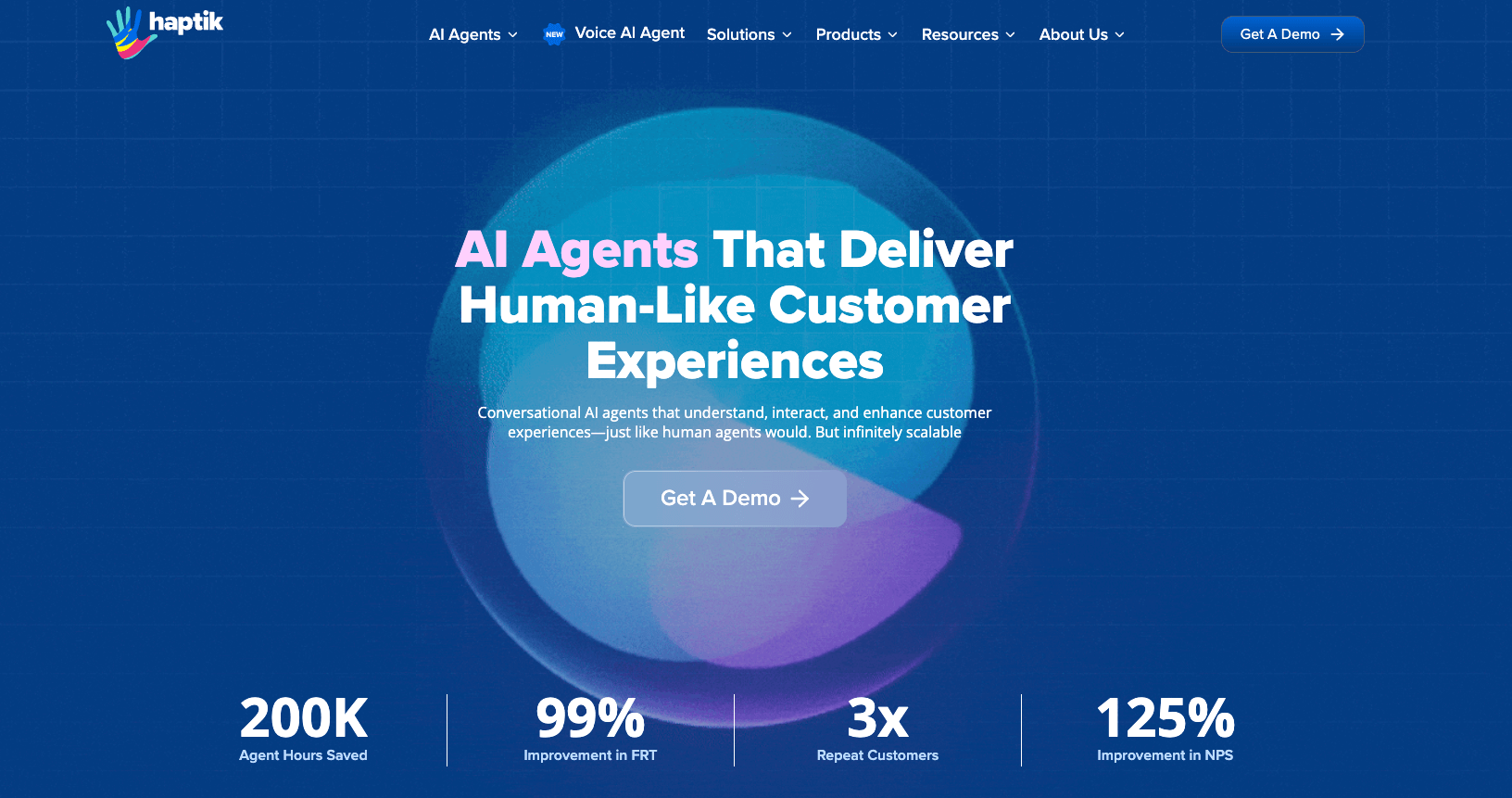


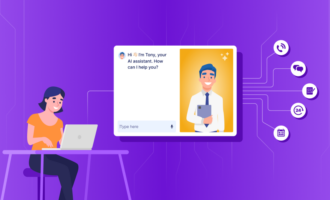


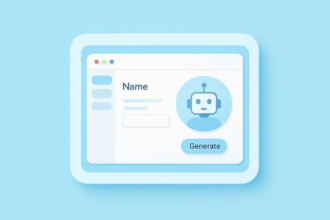

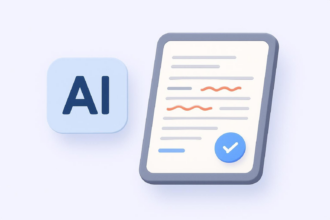





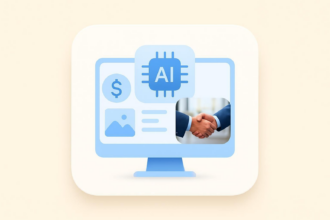
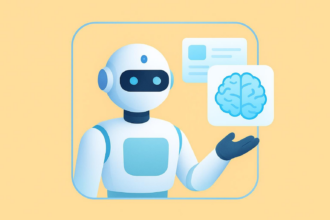

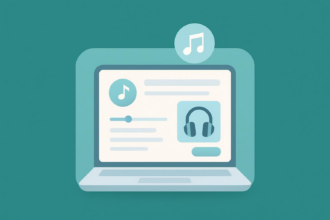


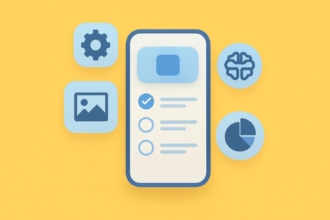

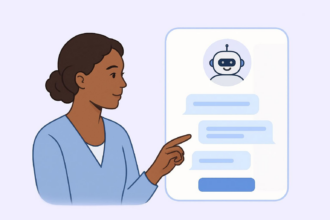

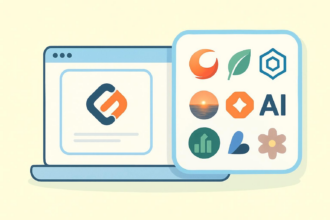

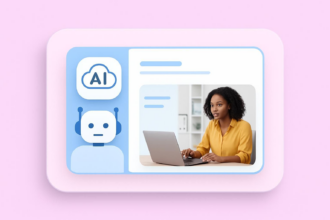

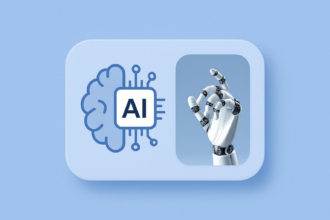
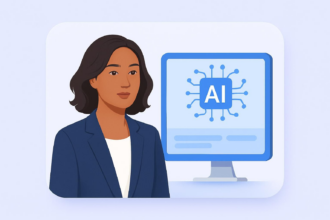



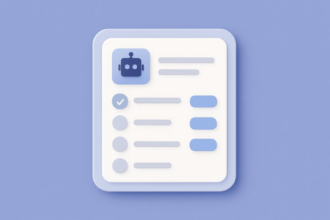





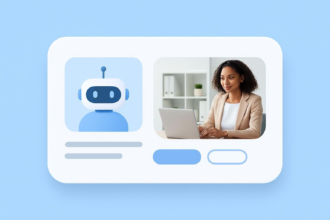













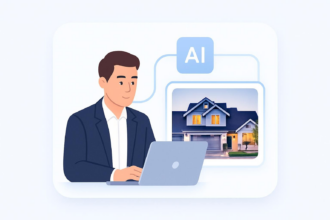
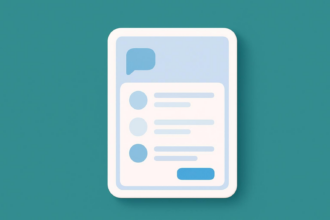



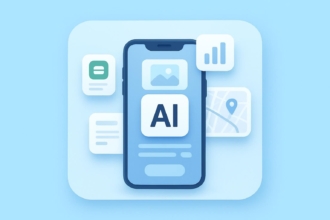






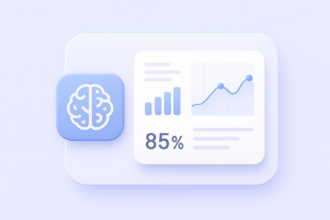

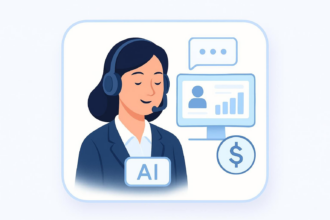
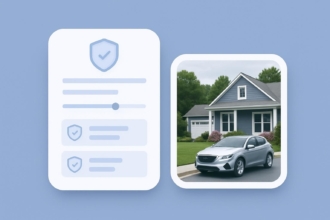










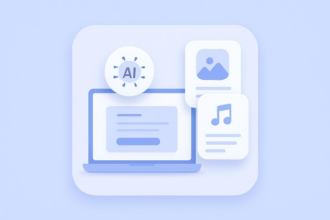



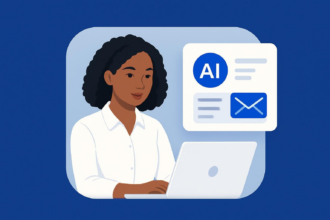

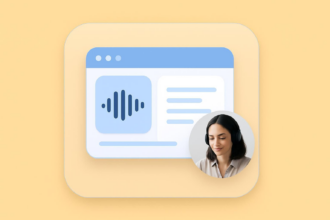



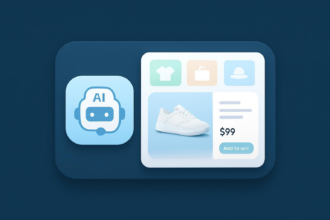

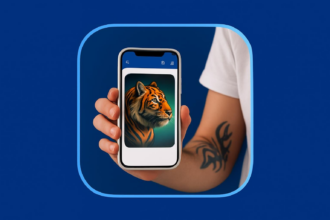




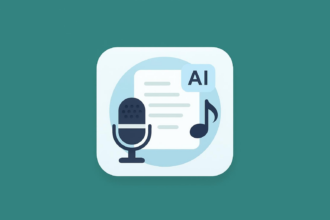

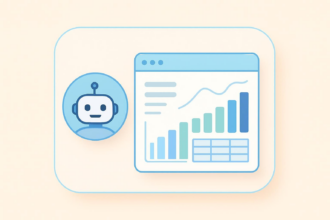
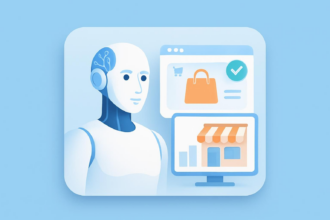



Send Comment: